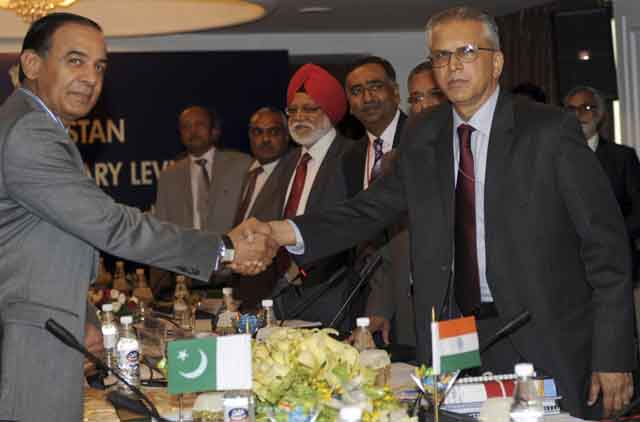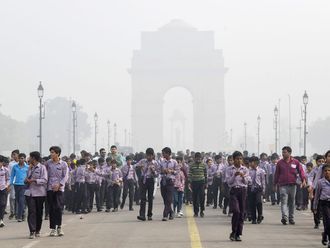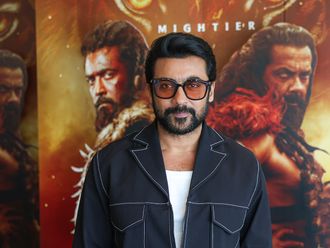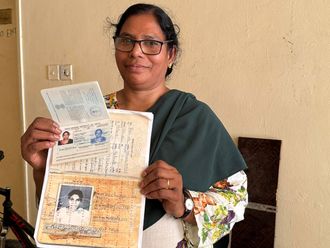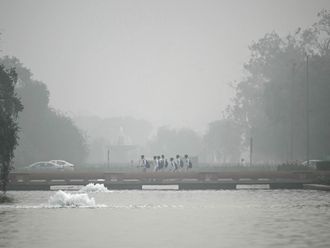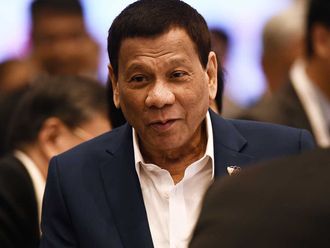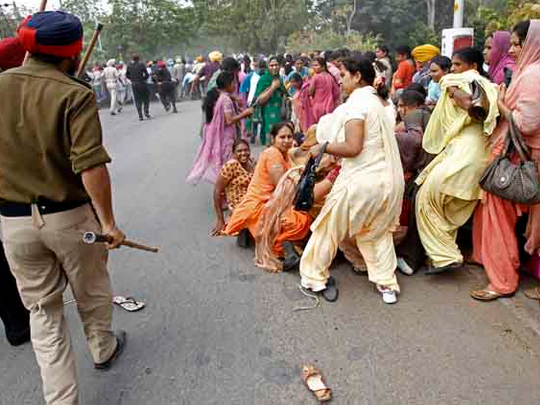
New Delhi: India and Pakistani officials began their first formal peace talks since the 2008 Mumbai attacks on Monday in a meeting pushed into the background by the decision of their leaders to meet during a World Cup cricket match between the two countries.
The two home secretaries, the top civil servants in charge of security issues, met in New Delhi to repair relations between nuclear rivals broken off after the Mumbai attacks when Pakistani militants killed 166 people in a three-day shooting spree.
The talks are due to end on Tuesday, but the focus has already turned to Wednesday's World Cup cricket semi-final between the two old rivals after Indian Prime Minister Manmohan Singh invited Pakistani Prime Minister Yousuf Raza Gilani to the game.
Progress in Monday's talks was anyway expected to be small. They are about preparing the groundwork for a ministerial meeting in July that would put issues like Kashmir, terrorism and trade on the negotiating table in what is known as the "composite dialogue".
The two countries, which have fought three wars since their independence from British rule in 1947, agreed in February to resume formal peace talks.
In a goodwill gesture ahead of the cricket match, President Asif Ali Zardari will also free an Indian national, Gopal Das, who has been languishing in a Pakistani prison for 27 years as an alleged spy.
Cricket diplomacy
Wednesday's match has been heralded as "cricket diplomacy", something of a tradition between the two countries that has at least helped ease tensions in the past.
Former Pakistani President Mohammed Zia ul-Haq visited India in 1987 to watch a one-day match when the two countries' armies were eyeball-to-eyeball on the border.
In 2005, Pakistan's then military ruler, Pervez Musharraf, travelled to India to watch a match but the trip effectively turned into a summit and the two leaders agreed to open up the militarised frontier dividing the disputed Kashmir region.
"Going by past experience, however, cricket diplomacy has sadly been about short-lived atmospherics," The Times of India said in an editorial.
Fortress Mohali
The match has turned the northern city of Chandigarh into a fortress. There will be a "no fly zone" around the stadium and commandos will patrol the city. Anti-aircraft guns will be placed near the stadium, the Times of India reported.
Touted as "the mother of all cricket contests", the game between the two cricket-mad nations has reportedly seen requests from business tycoons, including India's richest man, Mukesh Ambani, to allow them to park their private jets in Chandigarh.
Tickets sell on the black market for as much as $2,000 in a country where 450 million live on less than $1.25 a day.
Angry protestors hurled stones and clashed with police outside the Punjab Cricket Association Stadium on Monday in the runup to Wednesday's India-Pakistan Cricket World Cup semi-final.
Baton-wielding police and security forces on horseback tried to push back the crowds as a protest outside the stadium turned ugly and a Reuters witness said seven people were arrested and taken away in a police van.
Injured men were seen lying on the grounds as they tried to escape the police action. It was not clear what had sparked the protest.
A heavy security presence has surrounded the 30,000 seat stadium ever since the two neighbouring countries set up the hotly anticipated showdown last week.
Local police told Reuters the protest was unconnected to the shortage of tickets that has angered fans in several Indian cities over the past five weeks.
Last month's violence in Bangalore erupted after tens of thousands of fans who had camped overnight outside the 38,400-seat M Chinnaswamy Stadium were told all 7,000 tickets allocated for public sale for the February 27 India v England game had been sold.
Police also used batons to control the angry fans on that occasion and similar scenes were witnessed in Nagpur on March 8 in the lead up to India's group match with South Africa.
Ticket sales for the February 19 to April 2 tournament have proven to be a major headache for Indian organisers, who are unable to meet demand for the high-profile matches, especially those featuring the home team as well as the April 2 final in Mumbai's Wankhede Stadium.
Scepticism on all sides
Pakistanis will be sceptical that Singh is simply playing to his domestic audience and trying to distract from a string of corruption scandals that have effectively paralysed the Congress-led government for months.
"If the Indians have invited the prime minister and the president, there is no harm in going there, because this is a gesture," said Ejaz Haider, a Pakistani political analyst and contributing editor for Friday Times. "But this gesture in itself is not going to result in any breakthrough in substantial terms."
Many Pakistanis also see little chance the ruling Congress party and its powerful, ruler-behind-the scenes Sonia Gandhi are really interested in making peace overtures.
It is a risky issue for any Indian leader, one that wins few votes and would quickly backfire if there was another attack in India blamed on Pakistan.
India, for its part, has always been sceptical about peace talks with civilian leaders in Pakistan, who play second fiddle to a more hawkish military intelligence service and army.
Time for change
But there may be new political winds blowing.
The 78-year Singh was born in Pakistan before moving to India after Partition in 1947. Peace with Pakistan would secure his political legacy, threatened by months of corruption scams that have led the opposition to call for his resignation.
Pakistan is also facing an increasingly difficult regional environment. India's new economic clout has seen it grow in influence with Pakistan's traditional ally, the United States. New Delhi has also been increasingly involved in aid to Afghanistan, see as Islamabad's backyard.
In one sign that India may be taking these talks more seriously, the Times of India reported on Sunday that New Delhi wanted to open channels of communications with the Pakistan army chief and the head of its intelligence service, seen as the real powerbrokers in any talks.
Singh's perceived determination may win similar commitment from the other side.
"This kind of reputation that the PM has, in my view it helps," said Naresh Chandra, a former Indian ambassador to the United States.
"It creates a climate that you can do business with this prime minister. It encourages the Pakistani side to do so."


